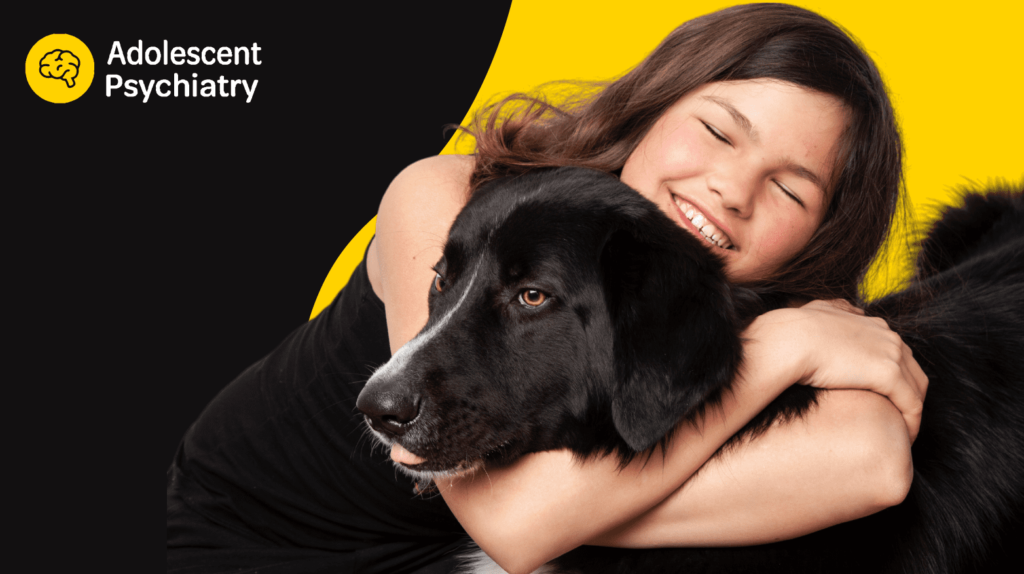The legendary fantasy role-playing game D&D, or Dungeons & Dragons, has taken the world by storm. It enables millions of players to create their own stories and characters, like a courageous hero or an evil antihero. You can use your imagination to develop your characters, told through various quests, battles, and rescue missions.
This article explores and discusses common DnD traits and how they affect character backgrounds, values, morals, skills, flaws, fears, and much more.
How to create a character
With storytelling at the core of D&D, there are endless opportunities to get your creative juices flowing. Some players choose to build a character’s personality based on a glorified version of themselves, while others take a different path and design a character who has the complete opposite personality traits.
Either way, every player can choose between varying personality traits, ideals, bonds, and overall characteristics. There is no right or wrong way to do it.
Character Details
Name
Your character’s race description will include sample names for players of that race. Think about which name you want to use, even when picking from a list, and remember the impact race has on it.
Gender
The gender of a character will affect their skills and flaws. Think about how your character will approach various societal norms and expectations in regards to sex and gender.
Height and Weight
You get to pick your character’s height and weight. An agile character may be thin, while a strong and tough character may be tall and heavy.
D&D Personality Traits
How traits influence the story
Characters are defined by so much more than the basics of name and physical traits. They’re full-functioning individuals with their personality traits, connections, interests, and capabilities.
These character traits can have a significant impact on the story and its outcomes. For example, let’s say your character is aggressive. This specific trait can influence how others respond to you. It can be a positive trait to help get the job done, or maybe it will wind up causing tension and escalating bad situations.
How characters react to their traits
The characters themselves may choose to not acknowledge certain personality traits, or they may be unaware entirely.
This is done to make the game more realistic. For example, many people in real life are blind to their flaws. The same concept is present in the game.
Common personality traits
You can construct unique traits, characteristics, ideals, skills, and more. Here’s a list of common personality traits that will impact character behavior and their overall power.
Abrasiveness
An abrasive person will have extremely direct behavioral habits, often coming off as cold and harsh. In the game, this can be seen as a negative trait.
These characters struggle to initiate and maintain conversations with others.
Absent-Minded
Absent-minded characters are essentially overthinkers. They are undoubtedly smart, but they are always in their own head, evaluating new ideas and thoughts.
They can be relied on for immense knowledge but will struggle to stay in the present moment and hold conversations with others.
Aggression
A character with aggressive behavior will be easily triggered, and therefore, can escalate harmful situations significantly. While aggression can be used to intimate others, it can also lead to fights that end badly for everyone involved.
This level of brute force is sometimes needed to fight battles, but a calm and peaceful mind will seek solutions that bypass the unnecessary fighting.
Brawler
Brawlers are constantly engaging in fights and quarrels with other characters. They prefer to use their fists rather than weapons, which can make it difficult to win a battle where weapons are being used by the other side. Still, brawlers can think quickly on their feet and make decisions under pressure.
Cautious
Cautious characters carefully consider and analyze potential problems and situations of danger. They have a strong desire to avoid confrontation and therefore use strategies to get out in the safest way possible.
Cautious players may come off as timid at times, but they’re the best people to solve an issue peacefully.
Detached
A detached character is living in their own little world. They’re unaware of their surroundings and unable to connect with other people on an emotional level. They don’t talk much but hold power in the fact that they cannot be trusted.
Dishonesty
Characters who are dishonest often engage in fraudulent and deceitful acts. In simpler terms, they lie a lot. They use lying as a strategy to get what they want out of people. This is a resourceful trait to gain information and knowledge.
But, if you get caught in a jumble of lies, it can destroy your character. Plus, if they wind up telling the truth every once in a while, no one believes them.
Distinctive
This particular personality trait will set you apart from other characters in the game. A distinction could include anything that makes you physically different from the others – such as a scar or big ears.
This could be seen as a disadvantage if the character needs to disguise their appearance or hide. But, a distinctive character may also gain sympathy from others, which can be used to their benefit.
Easygoing
This trait refers to someone who is laid-back and casual about most things going on around them. They’re easy to talk to and make friends easily. This could help mend an escalating situation.
On the other hand, easygoing characters may have a hard time standing up for themselves in a fight. They may be pretty gullible as well.
Farsighted
In the world of D&D, glasses do not exist. This means characters who are farsighted may consistently struggle with their vision. This trait is mostly considered a flaw.
Even though farsighted people may have a hard time seeing what’s right in front of them, they can see what’s in the distance with clarity.
Focused
A focused character can adapt to ever-changing situations and still see things clearly. They keep their eyes on the prize, regardless of the distractions happening in the background.
However, it’s possible to be too focused. This trait could lead a character to acknowledge everything, but then ignore something important.
Hard Of Hearing
Hard of hearing refers to characters with mild to severe hearing loss. Because of this impairment, their other senses may be heightened to compensate.
Hardy
A character with hardy personality traits is strong and receptive in stressful situations. While this hardiness contributes to resilience, it also can cause the character to overestimate their strength and risk getting hurt.
Honest
A character with honesty and high morals has various attributes, including straightforwardness, trustworthiness, and integrity. This is a significant benefit as other characters will innately respect that what you’re saying is true.
Adversely, this can cause the character to have trouble detecting when others are lying.
Illiterate
In the world of Dungeons & Dragons, reading is seen as a privilege. Those who cannot read may hold other important skills that will be valuable in the game. Characters can also learn to read over time.
Inattentive
Someone who is inattentive will struggle to pay attention and empathize with others. This character will be able to complete minor tasks, but won’t finalize the big, more difficult projects.
Polite
A character who practices politeness will respect other characters, without coming off as too aggressive. They have good manners and strictly adhere to the rules of the game. Politeness can be used to their benefit when speaking to other people and resolving an issue.
Quick
A quick character is simply faster than everyone else. They can make quick escapes from dangerous situations, but they may have flaws and disadvantages in other areas.
Relentless
Someone who is relentless will show a strong determination to get something done and will refuse to give up. This will be great in situations that require resilience, but it can also cause the character to over-work and exhaust themself.
Slow
While slowness is likely seen as a flaw, it allows the person to remain steady and stable throughout the game. Though, they will not be able to escape as fast as they may want to.
Specialized
A specialized character is a master in one specific skill set. For example, they could master the art of fighting. However, this means that they will have fewer skills in other subjects. Strong fighters may struggle with knowledge and freedom.
Suspicious
These characters trust no one and are skeptical of everything. This can help them spot other characters that are trying to pull a fast one, but it can be a problem in situations where some level of trust is needed. This can turn people away and create enemies.
Uncivilized
An uncivilized character cannot be defined by one or even multiple personality traits. They are not sociable and relate more to animal characteristics rather than human traits.
FAQs: D&D Personality Traits
What is D&D?
Dungeons and dragons, termed D&D for short, is a fantasy tabletop role-playing game. Players of the game can create their own character, who then go on an adventure in a fantasy-built landscape.
How does the D&D game work?
While on missions, characters work to solve various problems, dilemmas, and battles. There is a dungeon master who directs the story and setting of the game. Participants can choose to play as a group and work together to gain experience points to move to the next level.
What are personality traits?
A personality refers to individual differences in regards to characteristics and patterns of behaving, thinking, and feeling. These traits are consistent and relatively constant, though a person can change in various facets throughout their lifetime.
How do personality traits relate to the game?
In the world of D&D, some character personality traits remain constant, while others can change and evolve. A character’s personality defines their identity, affecting not only their behavior but how they will handle certain circumstances.
What are character ideals in D&D?
In the world of Dungeons and Dragons, a character’s personality and ideals are in direct alignment with their beliefs. Characters will have different ideals – such as driven, greed, respect, freedom, tradition, etc. This will affect how the character behaves in the game and how other players view her/him.
How many traits can a character have?
According to the rules of D&D, a character’s personality can have two traits. But the character can always develop and grow throughout the game, gaining knowledge and learning new skills.
What are bonds in D&D?
Bonds refer to character connections with other players, locations, and events. A bond will link to the character’s background and influence their actions.
What is your D&D alignment?
A character’s alignment measures how well their traits line up with their ideas, background, and overall personality. This will determine character destiny.
What are flaws in D&D?
Just as in real life, character flaws will directly impact everyday challenges and struggles. However, a personality trait that’s considered a “flaw” will also make the character more relatable and approachable.
How do you make a DND character cool and fun?
There are several ways to make a character more interesting and unique. You can make the character evil with traits like greed and aggression. Or you could opt for the heroic traits – such as kindness and trustworthiness. The options are endless. Try testing out different traits and see which ones make the coolest characters.
How do you choose personality traits?
You can start with the character sheet, which will give you some ideas in regards to the characteristics and traits available to choose from. You could also try out the personality generator, which will randomly assign your character a personality trait or two.
What are the main characteristics?
A few main traits will directly influence character ideals, beliefs, morals, ideas, and bonds. They will also determine the character’s background and overall personality. When initially creating the character, you can opt for the suggested traits through the personality generator, or you can assign your traits to the character.
What are positive traits?
Positive traits in Dungeons and Dragons are pretty similar to those in real life. For example, a character who is polite and honest is considered to have positive traits.
This will enable your character to build bonds and relationships based on trust. When creating your character, consider which positive traits you want them to have. This will impact their skills and how they navigate through the game.
Adversely, if you intend to create an evil character, pick some traits that would be considered bad in real life.
What are good flaws?
There are some good flaws and some bad ones. Good flaws will afford your character to benefit in some respect.
This will be an important step to achieve the best character proficiency. Your character details need to be in alignment, which is especially true when choosing the flaw trait.
Which traits make a good character?
When choosing your character traits and personality, it’s up to you to build the best character based on how you play. Their characteristics will affect how others view them in this fantasy world.
For example, you can decide between a female or male player. This will then generate different trait options when building this individual’s personality. It all depends on your desired playing style.
If you’re not sure where to start when building your character, use the game resources. It’s best to work off of the character sheet and the list of suggested traits when deciding which will benefit you the most. If all else fails, you can always use the random personality generator that assigns you various traits and characteristics.
Resources:
https://www.mayoclinic.org/diseases-conditions/compulsive-gambling/symptoms-causes/syc-20355178
https://www.sandiegoreader.com/readernews/real-money-blackjack-sites/
https://www.gamblingsites.org/casino/blackjack/variations/
https://www.scu.edu/illuminate/thought-leaders/phil-kesten/outsmarting-the-casino-at-blackjack.html
Conclusion
In this article, we reviewed the legendary game of D&D and how to build a character’s personality. We found that various traits and ideas directly impact how a player navigates through the game.
There are various personalities to choose from – like honest, easygoing, aggressive, etc. These specific traits will also influence how the character behaves and their flaws, abilities, skills, talents, and accomplishments. Overall, building unique personalities will allow you to connect the character to your real life.
We hope these ideas will benefit you when you play next.
The information on this page is not intended to be a replacement for treatment, diagnosis, or professional clinical advice. We do not recommend taking any action without consulting with a qualified mental health professional. If you are in a crisis or any other person may be in danger - don't use this site. These resources can provide you with immediate help.
Related Articles



